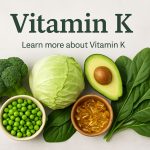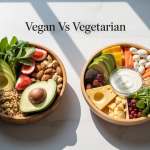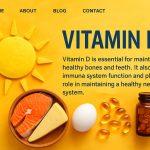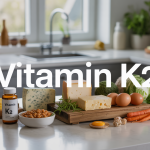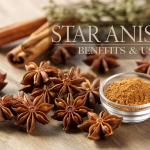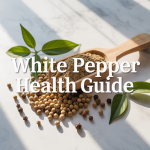Butternut squash packs serious nutritional punch while delivering a naturally sweet, creamy flavor that makes healthy eating enjoyable. This winter squash is perfect for home cooks, health enthusiasts, and anyone wanting to boost their nutrition without sacrificing taste.
This vibrant orange vegetable offers impressive benefits of butternut squash that go way beyond basic nutrition. We’ll explore how this versatile squash supports weight management through its fiber and nutrient density, plus dive into its powerful disease-fighting compounds that strengthen your immune system. You’ll also discover how butternut squash can enhance your skin health and learn simple ways to add this nutritional superstar to your weekly meal rotation.
Nutritional Powerhouse for Optimal Health
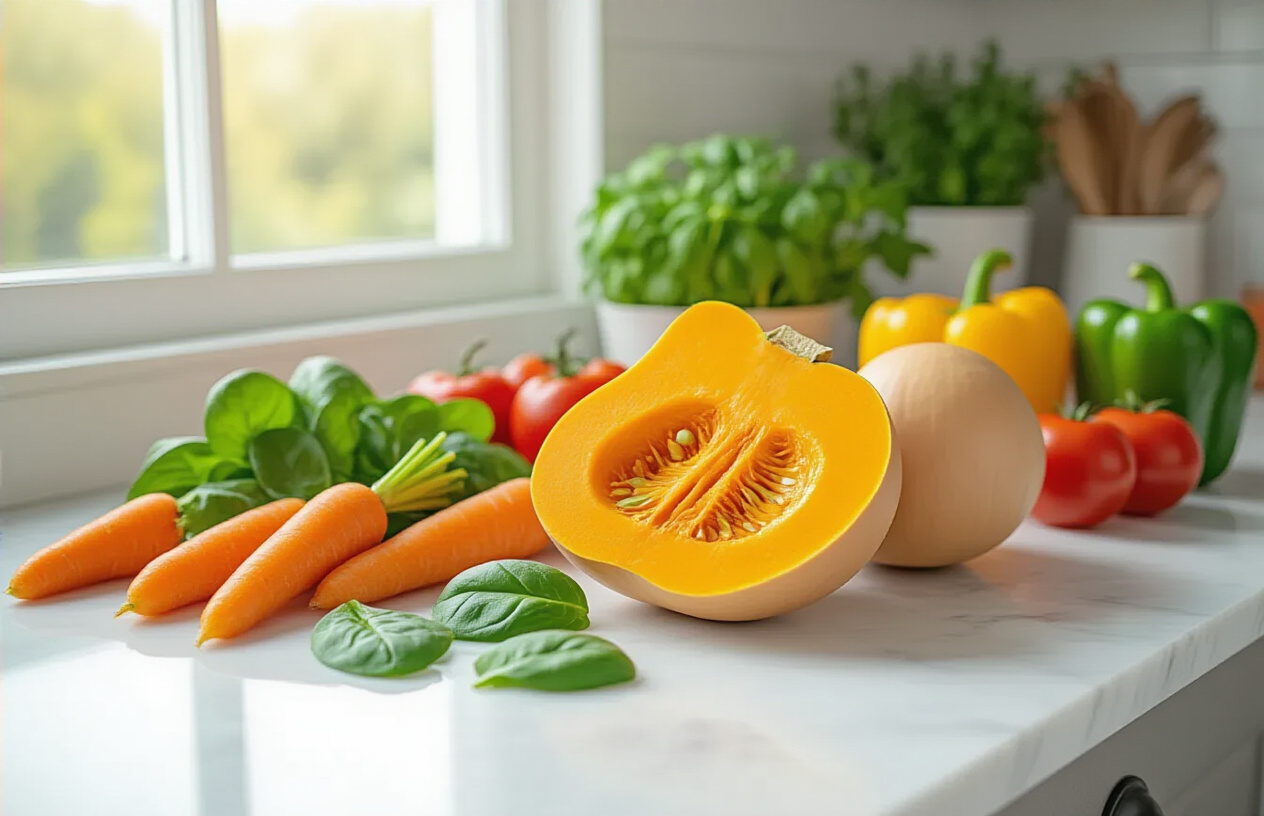
High Vitamin A Content for Vision and Immune Support
Butternut squash stands out as one of nature’s most impressive vitamin A sources, delivering over 350% of your daily recommended intake in just one cup. This vibrant orange flesh contains beta-carotene, which your body converts into active vitamin A as needed. Your eyes depend on this vitamin to produce rhodopsin, the protein that helps you see in low-light conditions and prevents night blindness.
Beyond vision support, vitamin A strengthens your immune system by maintaining healthy mucous membranes in your respiratory tract, digestive system, and urinary tract. These barriers serve as your body’s first line of defense against harmful bacteria and viruses. The vitamin also supports the production and function of white blood cells, giving your immune system the tools it needs to fight off infections effectively.
Rich Fiber Content for Digestive Health
Each serving of butternut squash provides approximately 6.6 grams of dietary fiber, contributing significantly to your daily fiber needs. This soluble and insoluble fiber combination works like a gentle broom through your digestive system, promoting regular bowel movements and preventing constipation.
Soluble fiber in butternut squash feeds beneficial gut bacteria, creating a thriving microbiome that supports overall digestive wellness. These friendly bacteria produce short-chain fatty acids that nourish your colon cells and reduce inflammation throughout your digestive tract. The fiber also slows down sugar absorption, helping prevent blood sugar spikes after meals and keeping you feeling satisfied longer.
Essential Potassium for Heart Function
Butternut squash delivers about 582 milligrams of potassium per cup, making it an excellent choice for cardiovascular health. This essential mineral works as an electrolyte, helping regulate fluid balance and supporting proper muscle contractions, especially in your heart muscle.
Potassium counteracts sodium’s effects on blood pressure, helping blood vessels relax and reducing strain on your cardiovascular system. Regular consumption of potassium-rich foods like butternut squash can help lower your risk of stroke and heart disease. The mineral also supports proper nerve transmission and helps prevent muscle cramps during physical activity.
Antioxidant Properties Combat Free Radicals
The brilliant orange color of butternut squash signals its rich antioxidant content, including beta-carotene, alpha-carotene, and lutein. These powerful compounds neutralize free radicals that cause cellular damage and contribute to aging and chronic diseases.
Alpha-carotene, found in high concentrations in butternut squash, has been linked to reduced cancer risk and increased longevity in research studies. Lutein specifically benefits eye health by filtering harmful blue light and reducing the risk of age-related macular degeneration. These antioxidants work synergistically, providing comprehensive protection against oxidative stress throughout your body.
Weight Management and Metabolic Benefits
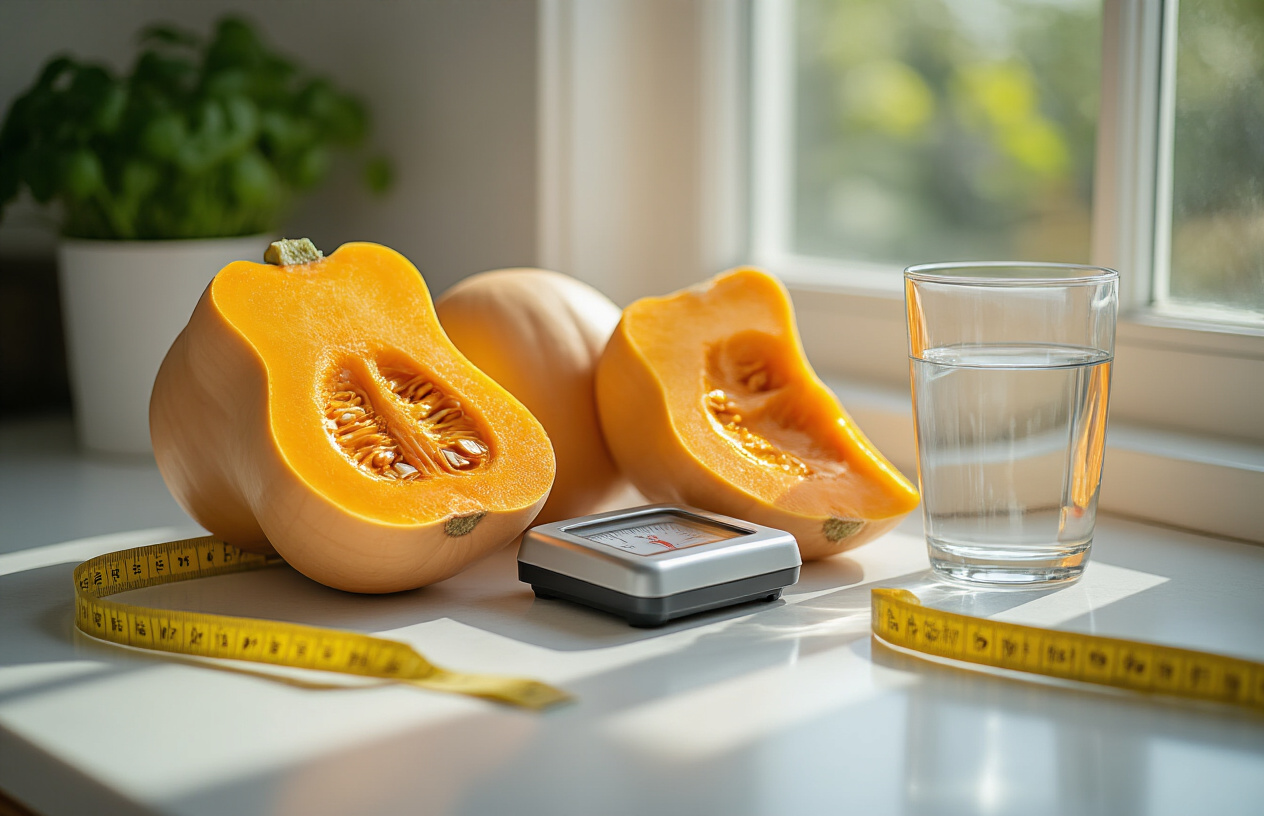
Low Calorie Dense Food for Satiety
Butternut squash delivers impressive fullness while keeping calories remarkably low. One cup of cooked butternut squash contains only about 82 calories, yet provides substantial fiber and water content that naturally triggers satiety signals in your brain. The combination of fiber and complex carbohydrates creates a feeling of satisfaction that lasts hours, making it easier to resist unhealthy snacks between meals.
The high water content—roughly 87% by weight—adds volume to meals without adding calories. This volumetric approach to eating helps you feel satisfied with smaller portions of higher-calorie foods. When you incorporate butternut squash into soups, stews, or as a side dish, you’re essentially filling up on nutrient-dense calories rather than empty ones.
The natural sweetness also helps curb sugar cravings, reducing the likelihood of reaching for processed desserts or sugary snacks that derail weight management goals.
Natural Blood Sugar Regulation
The fiber content in butternut squash acts as a natural brake on blood sugar spikes. Unlike refined carbohydrates that cause rapid glucose elevation, the complex carbohydrates in butternut squash break down slowly, providing steady energy release over several hours.
Beta-carotene and other carotenoids present in butternut squash have been linked to improved insulin sensitivity. Research shows that people with higher carotenoid intake tend to have better glucose metabolism and reduced risk of developing type 2 diabetes.
The magnesium content also plays a crucial role in glucose regulation. This mineral helps activate enzymes involved in carbohydrate metabolism and supports healthy insulin function. A single cup provides about 15% of your daily magnesium needs.
Metabolism Boosting Properties
Butternut squash contains several compounds that can rev up your metabolic engine. The high vitamin C content supports the production of carnitine, a compound that helps your body burn fat for energy. Without adequate vitamin C, your body struggles to efficiently convert stored fat into usable energy.
The B-complex vitamins, particularly B6 and folate, play essential roles in energy metabolism. These vitamins help convert the food you eat into cellular energy, keeping your metabolic processes running smoothly. They also support healthy thyroid function, which directly impacts your metabolic rate.
Potassium helps maintain proper muscle function, including the heart muscle. Since muscle tissue burns more calories at rest than fat tissue, maintaining healthy muscle mass through adequate potassium intake supports a higher baseline metabolic rate.
Disease Prevention and Immune System Support
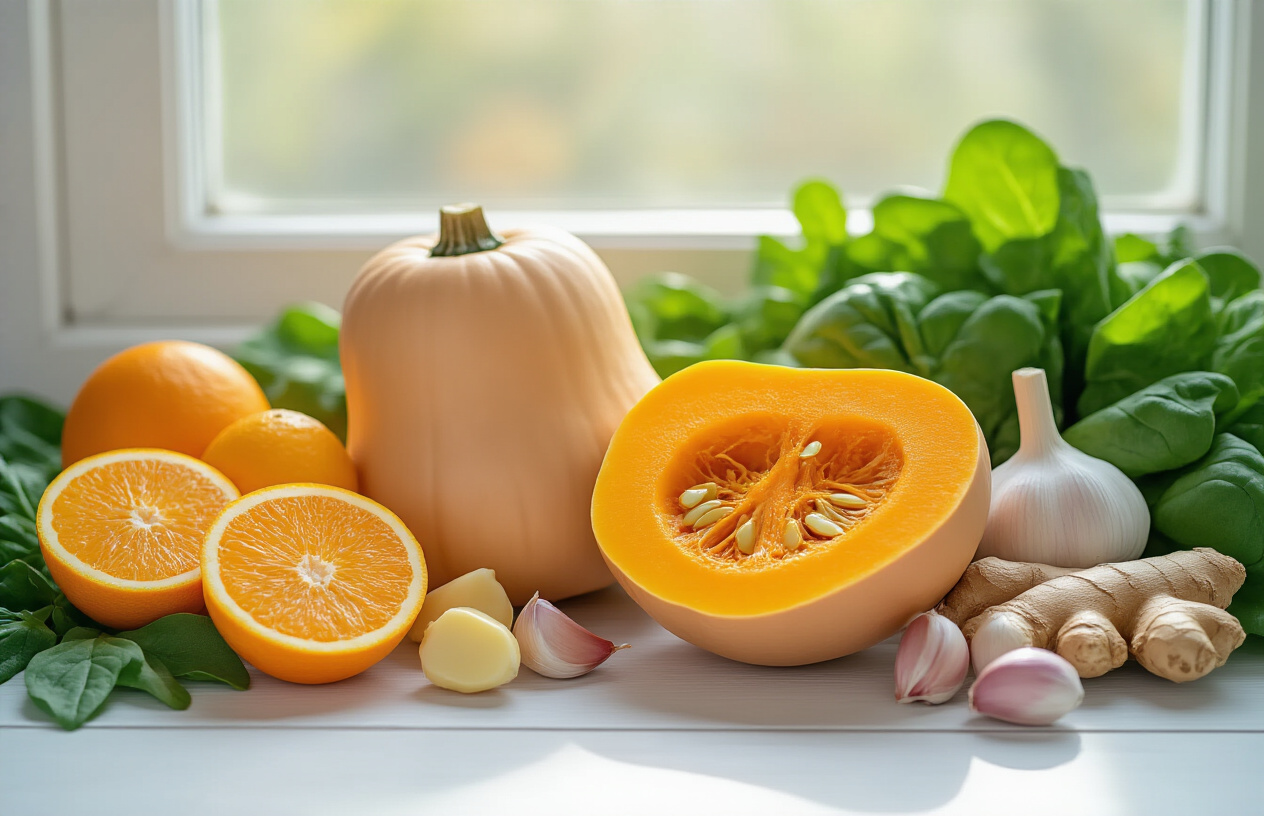
Cancer Fighting Compounds and Carotenoids
Butternut squash packs a serious punch when it comes to cancer-fighting nutrients. The vibrant orange color comes from beta-carotene, a powerful antioxidant that your body converts to vitamin A. This carotenoid acts like a cellular bodyguard, protecting your DNA from damage that could lead to cancer. Studies show that people who eat more carotenoid-rich foods have lower rates of lung, breast, and prostate cancers.
What makes butternut squash special is its concentration of multiple carotenoids working together. You’re getting beta-carotene, alpha-carotene, and lutein all in one package. These compounds don’t just fight cancer individually – they team up to create a stronger defense system. The fiber in butternut squash also feeds beneficial gut bacteria that produce compounds helping prevent colorectal cancer.
Anti-Inflammatory Properties Reduce Chronic Disease Risk
Chronic inflammation is like having a small fire burning inside your body that never gets put out. Over time, this leads to heart disease, diabetes, arthritis, and other serious conditions. Butternut squash contains natural anti-inflammatory compounds that help cool down this internal fire.
The vitamin C in butternut squash doesn’t just prevent scurvy – it actively reduces inflammatory markers in your blood. Combined with the carotenoids and vitamin E, you’re getting a triple threat against inflammation. Regular consumption can lower C-reactive protein levels, which doctors use as a marker for inflammation and future disease risk.
Enhanced Immune Response and Infection Protection
Your immune system needs specific nutrients to function properly, and butternut squash delivers many of them. Vitamin A supports the production and function of white blood cells, your body’s main defense against infections. Without enough vitamin A, your immune system becomes like an army with broken communication systems.
The vitamin C content boosts your immune response by helping white blood cells work more effectively and protecting them from damage. One cup of butternut squash provides about 50% of your daily vitamin C needs. The zinc and magnesium also play supporting roles in immune function, helping your body mount faster responses to threats.
Cardiovascular Health Improvement
Heart disease remains a top killer, but butternut squash offers multiple ways to protect your cardiovascular system. The potassium helps regulate blood pressure by counteracting sodium’s effects. Most people get too much sodium and not enough potassium, creating an imbalance that strains the heart.
The fiber content helps lower cholesterol levels by binding to cholesterol in your digestive system and escorting it out of your body. The antioxidants prevent cholesterol from becoming oxidized, which is when it becomes truly dangerous to your arteries. Regular consumption can improve overall heart health markers and reduce cardiovascular disease risk.
Bone Health and Calcium Absorption
Strong bones need more than just calcium – they require a whole team of nutrients working together. Butternut squash provides vitamin K, which helps your bones use calcium properly. Without adequate vitamin K, calcium can end up in your arteries instead of your bones, creating problems in both places.
The magnesium in butternut squash activates vitamin D, which improves calcium absorption. This creates a beneficial cycle where your bones get stronger and your cardiovascular system stays healthier. The vitamin C also supports collagen production, giving your bones the flexible framework they need to resist fractures.
Skin and Beauty Enhancement Benefits
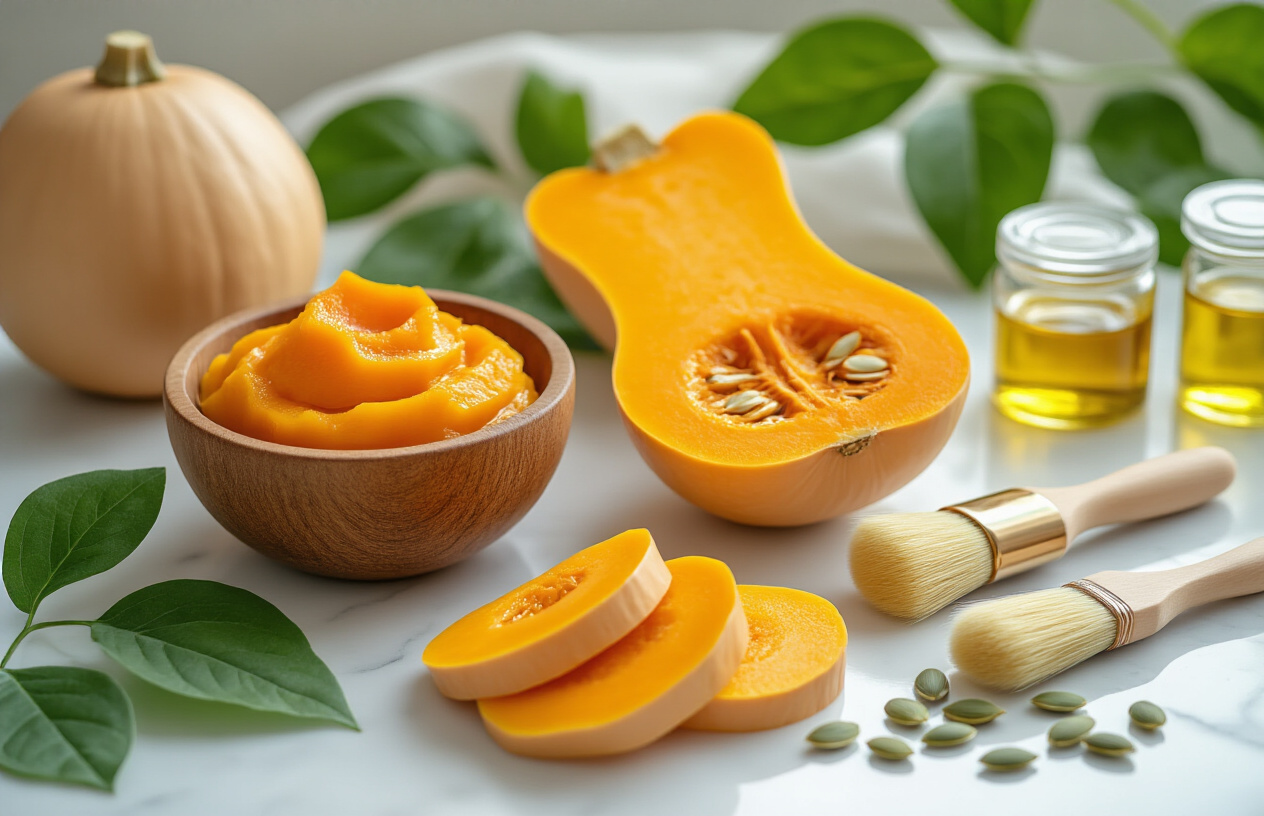
Collagen Production Support for Youthful Skin
Butternut squash delivers a powerful dose of vitamin C, providing about 35% of your daily needs in just one cup. This vitamin acts as a crucial building block for collagen synthesis, the protein responsible for maintaining skin elasticity and firmness. When your body has adequate vitamin C, it can produce collagen more efficiently, helping to reduce the appearance of fine lines and wrinkles.
The beta-carotene content in butternut squash converts to vitamin A in your body, which plays a vital role in skin cell regeneration. This process helps maintain smooth, supple skin by encouraging the production of new cells while supporting the natural repair of damaged tissue. Regular consumption can help your skin maintain its youthful appearance by supporting these essential cellular functions.
Natural Skin Hydration and Glow
The high water content in butternut squash, combined with its rich vitamin profile, contributes to natural skin hydration from within. The squash contains potassium, which helps maintain proper fluid balance in your cells, keeping your skin naturally moisturized and plump.
Beta-carotene gives butternut squash its vibrant orange color and acts as a natural sun filter when consumed regularly. This antioxidant helps protect your skin from UV damage while promoting a healthy, natural glow. Many people notice their skin develops a subtle warmth and radiance after incorporating orange vegetables like butternut squash into their diet consistently.
The vitamin E present in butternut squash works alongside vitamin C to protect skin cells from oxidative stress, helping maintain that coveted healthy glow while preventing premature aging caused by environmental factors.
Hair Strength and Growth Promotion
Butternut squash contains several nutrients essential for healthy hair growth, including iron, which helps carry oxygen to hair follicles. When your follicles receive adequate oxygen and nutrients, they can produce stronger, healthier strands that are less prone to breakage and thinning.
The vitamin A content supports sebum production in your scalp, creating natural oils that keep your hair moisturized and protected. This natural conditioning effect helps prevent dry, brittle hair while maintaining shine and manageability.
Folate and other B vitamins found in butternut squash support protein synthesis, which is crucial since hair is primarily made of protein. These nutrients help ensure your body can build strong hair strands from the inside out, promoting length retention and overall hair health.
Culinary Versatility and Practical Advantages
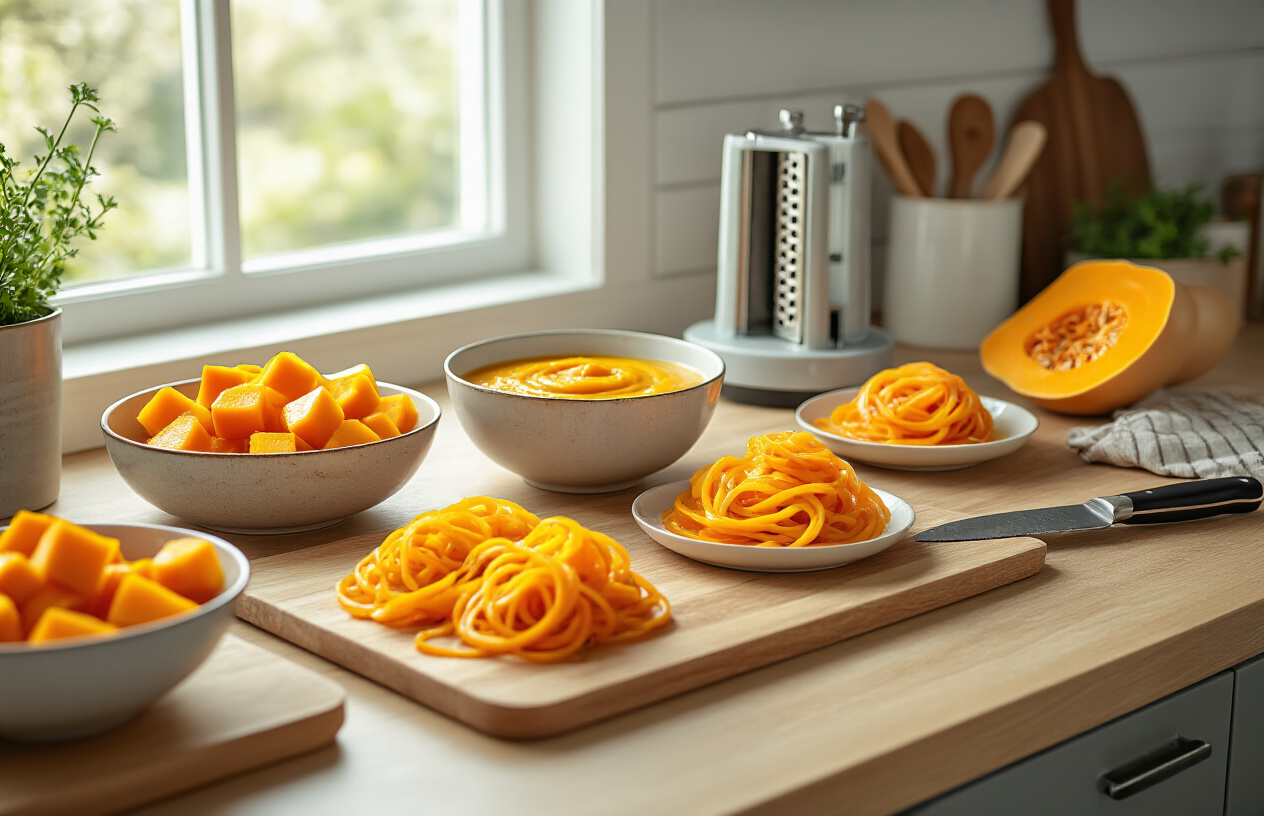
Easy Preparation and Cooking Methods
Butternut squash stands out as one of the most user-friendly vegetables in the kitchen. The hard exterior might seem intimidating at first, but once you get the hang of it, preparation becomes surprisingly straightforward. Start by cutting off both ends, then peel the skin using a sharp vegetable peeler or knife. The neck section peels easily, while the bulbous bottom can be halved and scooped out with a spoon to remove the seeds.
Roasting brings out the natural sweetness beautifully – simply cube the flesh, toss with olive oil and seasonings, then bake at 425°F for 25-30 minutes until tender and caramelized. For quicker cooking, try steaming cubes for 10-15 minutes or microwaving pieces in a covered dish with a splash of water.
The versatility doesn’t stop there. Butternut squash purees smoothly for soups, mashes perfectly as a side dish, and even works raw when spiralized into noodles or shaved thin for salads. You can stuff the hollowed-out shells, add chunks to stews and curries, or blend into smoothies for extra nutrition.
Long Shelf Life and Storage Benefits
One of butternut squash’s greatest practical advantages lies in its exceptional storage capabilities. When stored properly in a cool, dry place with good ventilation, whole butternut squash can last anywhere from 2-6 months. This impressive longevity makes it perfect for bulk purchasing during peak season or stocking up when you find a good deal.
Unlike many vegetables that require immediate refrigeration, whole butternut squash actually prefers room temperature storage in a pantry or basement. The thick, hard skin acts as natural protection, preventing moisture loss and bacterial growth. Just make sure to keep them away from direct sunlight and check occasionally for soft spots.
Once cut, the story changes – refrigerate cut pieces in airtight containers for up to a week, or freeze cubed squash for up to 12 months. Pre-roasted and pureed squash freezes exceptionally well, making it easy to have this nutritious ingredient ready for quick soups, baby food, or baking projects.
Budget Friendly Seasonal Availability
Butternut squash offers incredible value for your grocery budget. During peak season from September through February, prices drop significantly, often making it one of the most affordable vegetables per pound. Even at regular prices, the dense flesh means you get substantial nutrition and bulk for your money.
The fact that nothing goes to waste adds to its economic appeal. Seeds can be roasted for a crunchy snack, the skin can be composted, and every bit of flesh is edible. A single medium squash typically yields 3-4 cups of cubed flesh, enough for multiple meals or several servings of soup.
Smart shoppers can take advantage of seasonal abundance by buying in bulk when prices are lowest and storing them for months. Many farms and farmers markets offer bulk pricing, and some grocery stores run special promotions during harvest season. The combination of low cost, high yield, and long storage life makes butternut squash a smart choice for budget-conscious families looking to eat healthy without breaking the bank.
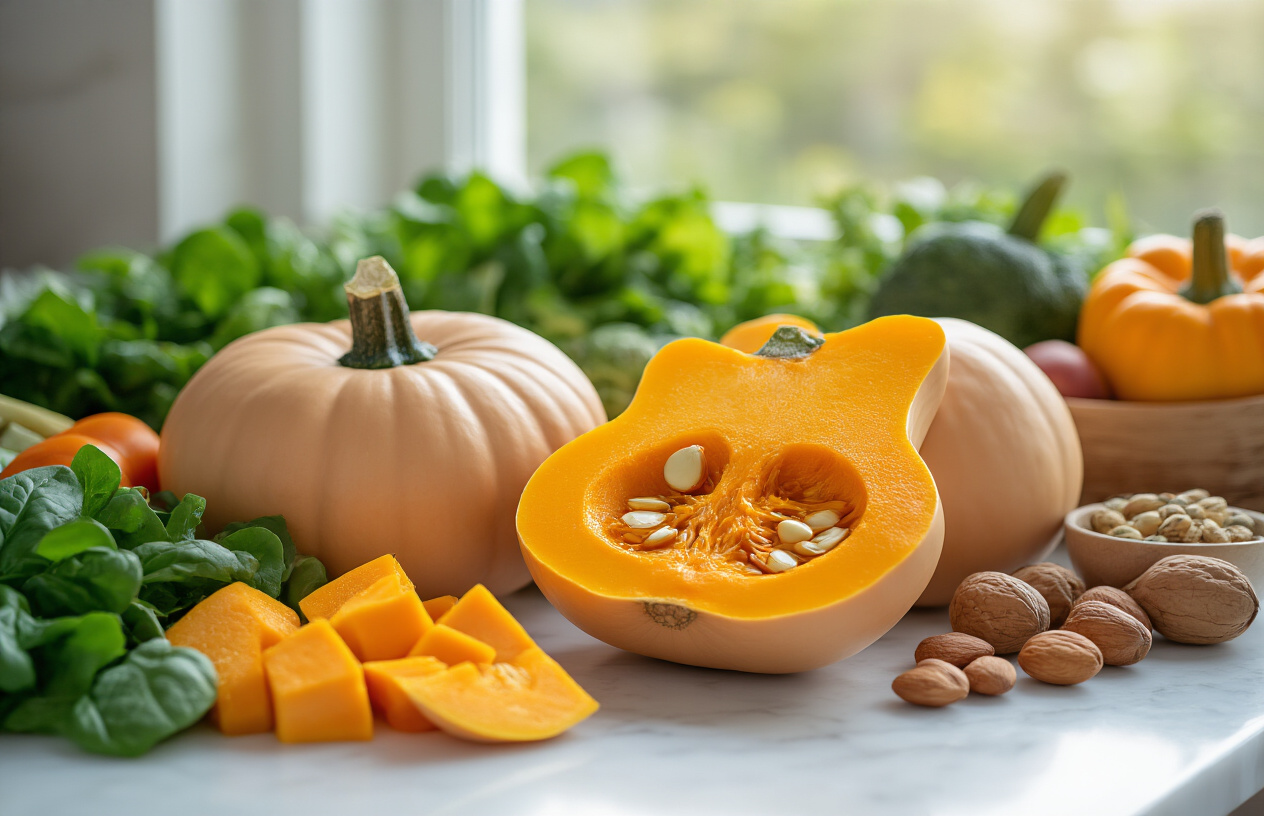
Butternut squash really packs a punch when it comes to supporting your health goals. From boosting your immune system with vitamin A and fiber to helping you manage your weight naturally, this orange veggie delivers serious nutrition without breaking the calorie bank. The antioxidants work behind the scenes to fight off diseases while giving your skin that healthy glow from the inside out.
The best part? You don’t have to force yourself to eat something boring to get these benefits. Butternut squash works in everything from creamy soups to roasted side dishes, and it stores well for months. Next time you’re at the grocery store, grab one of these golden beauties and start experimenting. Your body will thank you for the extra vitamins, your taste buds will love the sweet, nutty flavor, and your wallet will appreciate how far one squash can stretch across multiple meals.


